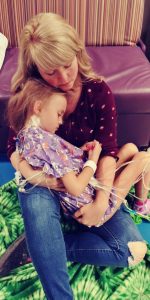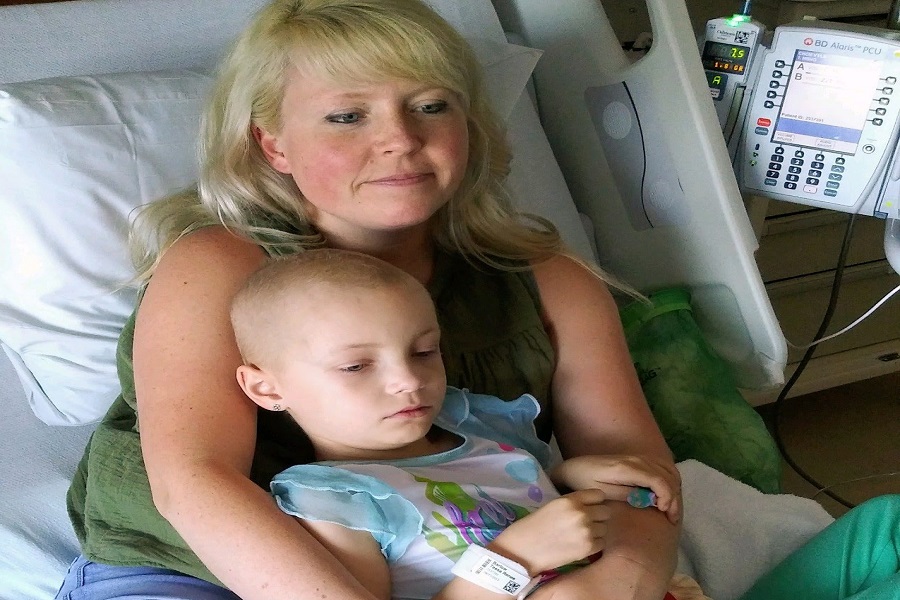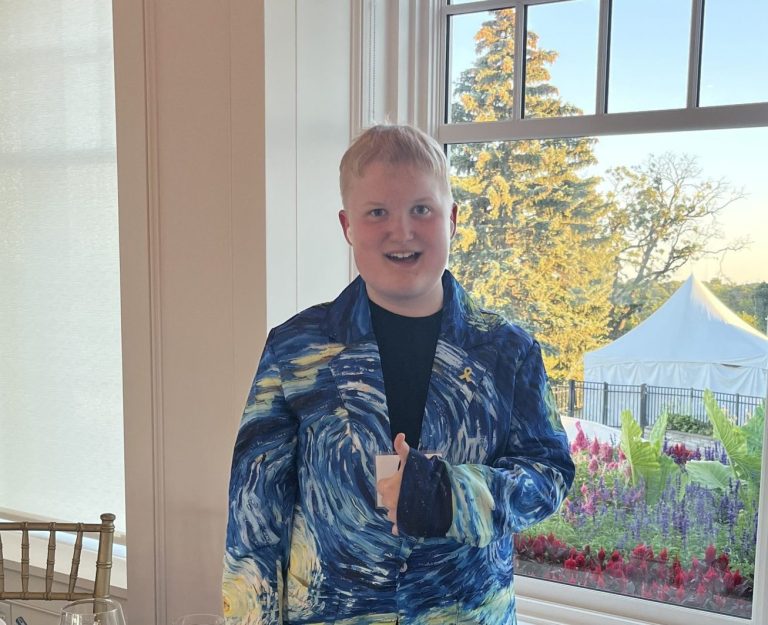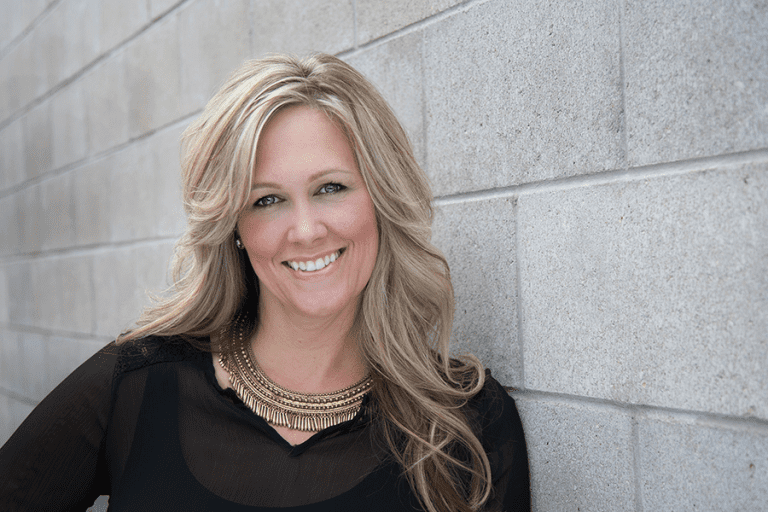Above: Kirsten with her daughter, Tessa, who is fighting leukemia.
Do you ever have flashbacks of remembering how you felt during the first few weeks, even the first months after hearing the words, “your child has cancer”? I do. It is fresh in my mind how bewildered I felt and how alarmed I was by each side-effect that my daughter experienced. I wondered with despair, ‘Is this just our life now?’ ‘Is this our new daughter?’
I picture my past self sitting in that hospital room with a worried expression and tear-streaked cheeks and I wish I could go to her. I would wrap my past self up in a big bear hug and tell her all of the things I know now. Of course, that’s not possible. I only know these things now because I have lived through it. It is only now that I know what the first months of chemotherapy are like for a child. While everyone’s story is unique, many of our experiences are similar.
If your child is in the first weeks or months of cancer treatment, take it from someone on the other side – this will be hard, maybe the hardest thing you’ve ever done. But you can do it – in fact, you already are.
Induction Phase – It’s Hard To Watch.

Kirsten and Tessa during the induction phase of Tessa's leukemia treatment.
During Induction, which is the first phase of treatment, my daughter Tessa lost her ability to walk. She was 7 years old. The first week, she was intubated for days at a time because she had a roaring infection and was in intense pain. That combined with starting chemotherapy treatment & steroids had wrecked her precious little perfect body and transformed her into skin and bones.
Tessa became this frail, sad, scared little girl who never smiled. The steroids changed her personality. She told the nurses she hated them when they had to change the dressing on her picc line. She would have never spoken to someone like that if she had been her ‘former self’. It was as if my daughter was a different person. Looking back, I wish I could tell myself, she is this way now because of the steroid medication. She will not always be like this. After ending the steroid, Tessa returned to her same silly and loving personality. She was not lost forever!
Tessa started physical therapy almost right away and slowly she began to build up her strength again. I couldn’t even count how many times I had to carry her to the bathroom. It took two months, but she was able to walk again by Christmas! I vividly remember how challenging it was to lift her into the backseat of our two-door Honda Civic and up into her car seat. She was so weak, she felt like a ragdoll. When we’d go to clinic appointments, I’d have to hope someone had left a wheelchair by the parking ramp elevator that we could use. I didn't want to leave my daughter in the car alone for very long while I grabbed a wheelchair.
Your New Motto: This Is Temporary
I would love to go back and reassure myself that she would walk again. I would tell myself, ‘This is normal. Many children lose their ability to walk during the first couple months of chemotherapy.’ She also developed foot drop, and lack of reflexes from the drug Vincristine. She needed to wear ankle orthotics (AFOs) for 10 months.
When you’re in the thick of it, it’s hard to see it as temporary. She is now running and jumping and doing all things physically normal for her age.
During the first two months, my daughter lost a lot of weight. She had a low appetite and most everything sounded unappetizing to her. She had always been slender, but after the first month of treatment she had gone from being at the 40% to being at 4% for weight for her age. It was scary and very stressful. We were constantly trying to get her to eat. We wanted to avoid having her get a feeding tube because I didn’t want her to have another ‘hard’ thing to deal with. She did end up finally gaining a little weight over the next couple months. We felt ‘safe’ with her weight after about four months of treatment.
Looking back, I would tell myself, ‘It’s ok if the doctors recommend a feeding tube! Many children have trouble gaining weight during treatment and many children end up getting feeding tubes. They are helpful and may actually relieve stress because then you know they are getting the right amount of calories.’
Your New Normal is not Forever.
If you are still in the first few months of treatment, just know that whatever your child is experiencing is most likely temporary. Don’t be afraid to ask your oncologist questions like, “Is this normal?” Yes, there can be some long-lasting side-effects but try to worry about those later if and when they occur, because they may not occur.
Things like moods, hair loss, muscle weakness, weight loss or weight gain are caused by your child being on these heavy medications… they are not going to be your new normal forever. They are just your new normal for the time being. My daughter has endured and suffered through the harshest parts of her treatment plan and is now in the Maintenance phase and doing very well. The first year or so of treatment for leukemia is very hard but keep persevering, and don’t lose hope!
Written by Kirsten Barlow, childhood cancer mom
My daughter Tessa was diagnosed at age 7 with acute lymphoblastic leukemia B-bell, standard-risk. She reached remission after the first 28 days of treatment. Her treatment plan is a total of two and a half years long. She has made it through the more aggressive parts of her plan and will be in maintenance treatment for one more year. Tessa, now 8, is the oldest of five siblings. Her siblings are 6, 4, 3 & 1 years old. We love to do things together as a family.
Start a fundraiser for kids fighting cancer
One of the best ways you can help a child with cancer is to start a fundraiser to raise money for cancer research. No fundraising idea is too big or too small to make a lasting impact in the life of a child with cancer.




